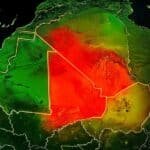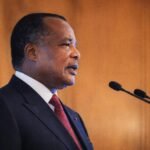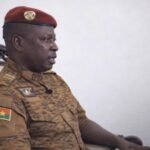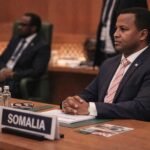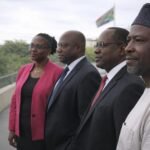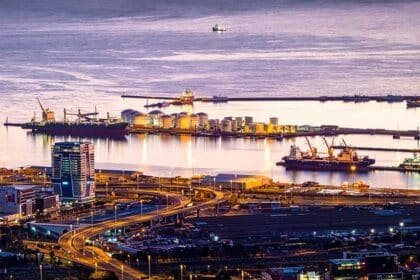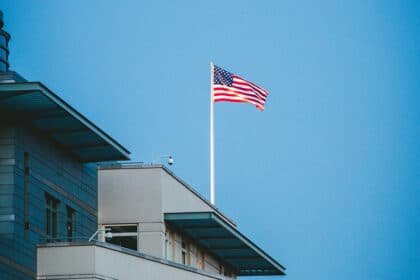A New Phase of Turbulence in a Historically Pragmatic Relationship
The relationship between Washington and Pretoria has long oscillated between pragmatic economic engagement and principled disagreement, most recently over vaccine patent waivers and South Africa’s posture at the International Court of Justice. President Donald Trump’s decision of 7 February 2025 to suspend direct development assistance to South Africa—while simultaneously prioritising the resettlement of Afrikaner applicants—has injected an unprecedented ideological charge into that relationship.
- A New Phase of Turbulence in a Historically Pragmatic Relationship
- Domestic Drivers in Washington: Politics, Optics and the ‘Reverse Discrimination’ Narrative
- Pretoria’s Strategic Calculus: Defending Reform Without Alienating a Vital Partner
- Land Reform, Historical Redress and Competing International Frames
- Humanitarianism or Selective Asylum? Assessing the Refugee Carve-Out
- Regional and Multilateral Reverberations
- Legal Foundations and Contestable Claims
- Prospective Scenarios and Policy Recommendations
- Navigating Principles and Pragmatism
What distinguishes the present moment is the combination of a punitive financial instrument—total aid suspension—and a seemingly humanitarian concession extended to a constituency widely regarded as historically privileged. The optics of selective benevolence have been amplified by public remarks from senior officials such as Secretary of State Marco Rubio, who cited “government-sponsored race-based discrimination” as justification for the resettlement initiative.
Diplomats in Pretoria privately concede that the Trump administration’s gesture is unlikely to compromise core trade flows under the African Growth and Opportunity Act in the near term, yet they also warn that the cumulative effect of aid withdrawal, refugee selectivity and hostile rhetoric risks eroding the reservoirs of trust that have hitherto enabled compartmentalised cooperation.
Domestic Drivers in Washington: Politics, Optics and the ‘Reverse Discrimination’ Narrative
Domestic political calculus in the United States is central to understanding the executive order’s timing and content. The rapid processing of Afrikaner cases—many completed in a matter of weeks rather than the average eighteen to twenty-four months—coincides with efforts by the White House to reassure a nativist electoral base that humanitarian gateways remain tightly controlled yet ideologically consonant with conservative anxieties about “reverse discrimination”.
That narrative has been reinforced by influential voices in the American conservative media ecosystem and by adviser Elon Musk, whose own South African origins lend emotive credibility to claims of rural violence against White farmers. Critics in Congress and in United States civil-society organisations point out, however, that empirical datasets do not corroborate a genocidal threat; farm-murder rates have indeed fallen since 2022, and murders of Black subsistence farmers receive comparatively little international attention.
By casting the United States as protector of a European-descended minority, the administration simultaneously energises political constituencies wary of demographic change at home and projects a moral image of racial impartiality abroad—despite the continuing suspension of admissions for conflict-affected groups from the Democratic Republic of the Congo, Afghanistan and Syria.
Pretoria’s Strategic Calculus: Defending Reform Without Alienating a Vital Partner
Pretoria’s official reaction of 9 May, conveyed via Deputy Minister Alvin Botes to Deputy Secretary of State Christopher Landau, employed notably temperate language, describing the exchange as “cordial” even while dismissing the persecution allegations as “unfounded”.
South African diplomats, conscious of the asymmetry in trade dependence, have opted for calibrated firmness: they contest the factual premises of the US order yet avoid inflammatory counter-measures that might jeopardise market access or cooperation on health security.
Internally, however, the episode has complicated the governing African National Congress’s delicate balancing act between its historic liberation narrative and the need to assure domestic investors—many of them Afrikaner—that the Expropriation Act 13 of 2024 will not degenerate into arbitrary confiscation. Ronald Lamola, the Minister of International Relations and Co-operation, reiterated that the Act is circumscribed by constitutional due-process guarantees and subject to judicial review.
Observers at the University of Cape Town’s Centre for Constitutional Rights note that Pretoria’s diplomacy must mollify anxious commercial farmers while defending a redistributive agenda essential to social cohesion. In that sense, Washington’s refugee carve-out is perceived domestically less as a humanitarian gesture than as an externalisation of South Africa’s own unresolved land question.
Land Reform, Historical Redress and Competing International Frames
Land reform is the substantive policy terrain upon which the dispute has been staged. From Pretoria’s vantage, expropriation without compensation represents a limited corrective to structurally embedded inequality: White South Africans, who account for less than eight per cent of the population, still control approximately seventy-two per cent of individually owned agricultural land.
From Washington’s perspective—as articulated in the executive order—the Act is cast as a categorical rights violation targeting a specific racial group.
The hermeneutic divergence illustrates a broader jurisprudential debate over whether corrective redistribution can ever be disentangled from racial classification. International precedents, notably the Inter-American Court’s 2005 Yakye Axa judgment, suggest that expropriation may be permissible where it serves a compelling public purpose and where proportional compensation mechanisms exist. Pretoria insists that the Act satisfies precisely those criteria; Washington asserts the contrary, without offering detailed empirical rebuttal.
The altercation has therefore become a proxy contest between two narratives of justice: restitutive egalitarianism versus colour-blind liberalism. Neither narrative is inherently incompatible with international law, but their juxtaposition in an emotive bilateral context renders compromise elusive.
Humanitarianism or Selective Asylum? Assessing the Refugee Carve-Out
A central tension lies in the ostensibly humanitarian rationale of the US measure. Under the 1951 Convention and its 1967 Protocol, refugee status requires a well-founded fear of persecution. The United Nations High Commissioner for Refugees has not identified Afrikaners as a population of concern, and no reputable survey suggests systemic denial of police protection or legal remedy. World Relief, a long-standing US resettlement partner, has publicly welcomed the arrivals while decrying the continued freeze on admissions for other refugee cohorts.
Comparative legal analysis underscores the unprecedented nature of granting P-1 status to nationals of an upper-middle-income democracy with an independent judiciary. By contrast, applications lodged by Rohingya Muslims, whose statelessness is well documented, remain in administrative limbo. The selective aperture gives rise to accusations of racial preference, not least within the American civil-rights community, which points to the Trump administration’s concurrent efforts to repatriate Haitian Temporary Protected Status holders.
Defenders of the policy contend that the United States retains sovereign discretion in defining humanitarian priorities and that historical privilege does not immunise a group from contemporary vulnerability. Yet vulnerability, in refugee law, must be specific, individualised and non-speculative. The present record, as documented by South African police statistics, does not evince the requisite gravity.
Regional and Multilateral Reverberations
Beyond bilateral friction, the episode reverberates through regional forums such as the Southern African Development Community, where member states perceive Washington’s posture as an intrusion into domestic reconciliation processes. Analysts at the Institute for Security Studies in Pretoria caution that US precedent could embolden minority groups elsewhere on the continent to internationalise grievances, thereby complicating fragile national dialogues.
At the multilateral level, the dispute intersects with South Africa’s leadership in the BRICS+. Chinese and Russian diplomats have already signalled—though obliquely—that Washington’s selective humanitarianism exposes a double standard often levelled at the West. Conversely, some European Union officials privately view the US initiative as a geopolitical gambit intended to isolate South Africa for its outspoken criticism of Israel at The Hague.
The African Union’s Peace and Security Council, meeting in Addis Ababa on 10 May, refrained from condemning Washington but reiterated support for South Africa’s land-reform agenda as constitutionally anchored. The Council’s communiqué, while brief, underscores the sensitivity of land politics across Africa, where colonial legacies continue to shape distributive claims.
Legal Foundations and Contestable Claims
From a strictly legal standpoint the United States is entitled, under domestic immigration law, to extend refugee status by executive designation. Nonetheless, doing so on grounds that appear to conflate political disagreement with persecution blurs the doctrine of well-founded fear.
The order’s preamble invokes national-security prerogatives—specifically South Africa’s “undermining United States foreign policy”—which sits uneasily alongside the humanitarian vocabulary of refugee protection.
South Africa, for its part, could in principle challenge the initiative before the World Trade Organization under the Agreement on Subsidies and Countervailing Measures, arguing that US domestic assistance to Afrikaners constitutes a de facto export subsidy for agricultural skills. Such a claim would be novel and, most likely, unsuccessful, but its very discussion signals the blurring of trade, migration and human-rights domains in twenty-first-century diplomacy.
Within South Africa, civil-society litigants are preparing to test the constitutionality of expatriate land-transfer arrangements that may arise if emigrating farmers seek to liquidate assets under preferential foreign-currency allowances.
Prospective Scenarios and Policy Recommendations
Three scenarios merit serious contemplation. First, an escalatory path in which aid freezes harden into targeted sanctions under the Global Magnitsky Act, prompting Pretoria to reciprocate through diplomatic downgrades. Second, a stabilisation path in which working-level channels quietly recalibrate refugee numbers and clarify vetting criteria, thereby compartmentalising the dispute. Third, a cooperative path—unlikely but not inconceivable—in which both governments leverage the controversy to inaugurate a bilateral commission on land and labour reform, integrating agricultural technology transfer with inclusive growth strategies.
For diplomats charged with crisis management, five principles are salient: de-escalate rhetoric, privilege empirical data over anecdotal claims, respect judicial processes in both jurisdictions, uprate multilateral mediation and insulate commercial ties from political theatre. The European Union and the African Union could facilitate discreet shuttle diplomacy, while the Office of the UN High Commissioner for Human Rights might be invited to provide an independent assessment of rural-violence dynamics.
Navigating Principles and Pragmatism
The Afrikaner refugee initiative encapsulates a paradox at the heart of contemporary statecraft: humanitarian language deployed to advance a geopolitical agenda can corrode the very norms it purports to uphold. For Washington the episode may yield short-term domestic dividends, yet it risks entrenching perceptions of racial selectivity that undermine global leadership on refugee protection. For Pretoria the challenge is to defend sovereign reform without alienating a partner essential to trade, investment and security cooperation.
Ultimately, the durability of Washington–Pretoria relations will depend on whether both capitals can re-anchor their interaction in evidence-based dialogue and mutual respect for constitutional processes. The present turbulence is serious, but not irreparable. Diplomacy, prudently practised, remains the art of reconciling principle with pragmatism.

